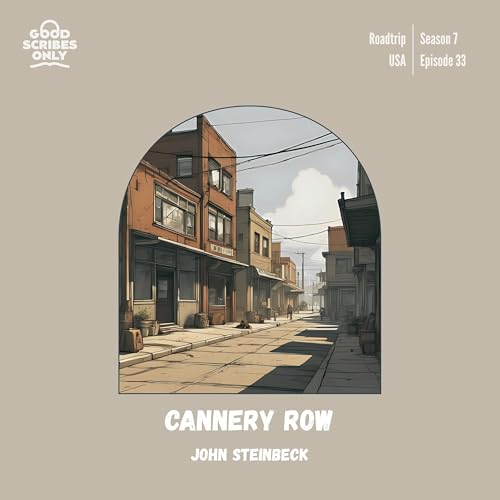
#147 Cannery Row - John Steinbeck
Failed to add items
Add to basket failed.
Add to Wish List failed.
Remove from Wish List failed.
Follow podcast failed
Unfollow podcast failed
-
Narrated by:
-
By:
About this listen
About the Book:
Published in 1945, Cannery Row is John Steinbeck’s affectionate portrait of a working-class community on the waterfront of Monterey, California, during the Great Depression. The novel centers on the lives of a cast of misfits—Doc, the gentle marine biologist; Mack and his band of good-hearted troublemakers; Dora and her girls at the local brothel—who make do with little but find meaning in friendship, small joys, and resilience.
Rather than a traditional plot, Cannery Row is a series of interconnected sketches that celebrate the humor, hardship, and humanity of ordinary people. Steinbeck blends lyricism with grit, tenderness with satire, capturing both the struggles of poverty and the enduring beauty of community life. At once nostalgic and unsparing, Cannery Row remains one of his most beloved works.
About the Author:
John Steinbeck (1902–1968) was an American novelist, essayist, and journalist whose works captured the spirit and struggles of 20th-century America. Born in Salinas, California, Steinbeck drew heavily on the landscapes, communities, and migrant workers of his native state. His novels often explored themes of labor, poverty, human dignity, and the bonds of community.
Steinbeck’s best-known works include Of Mice and Men (1937), The Grapes of Wrath (1939), which won the Pulitzer Prize, and East of Eden (1952). His clear-eyed yet compassionate storytelling made him one of the most important voices of his generation. In 1962, he was awarded the Nobel Prize in Literature for his “realistic and imaginative writings, combining as they do sympathetic humor and keen social perception.”
Website
TikTok
YouTube
Newsletter
Jeremy's Website
Dan's Website



